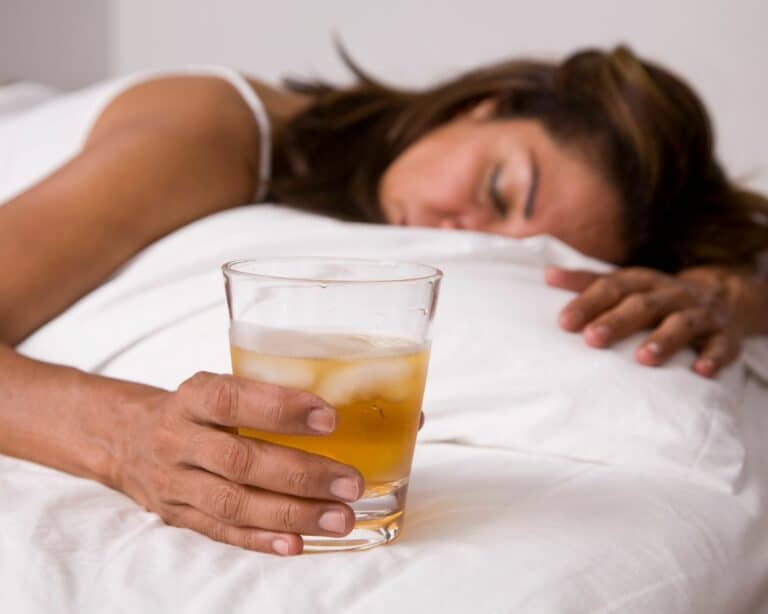Alcoholism is a devastating and complex disease. Without treatment, it’s unlikely that people who are addicted to alcohol will get better on their own. An effective treatment program involves pharmacological therapies, individualized counseling, and peer support groups. However, with advances in medicine in recent years, several medications have been approved by the Food and Drug Administration (FDA) to be used in the treatment of alcohol abuse and dependence. But, can medication alone be used to treat alcoholism?
Unfortunately, alcoholism recovery isn’t that simple. No single pill or therapeutic can completely cure alcoholism. Still, FDA-approved medications can significantly improve a person’s ability to cope with cravings and avoid relapse.
Medications Approved to Treat Alcohol Use Disorder
Medication is an important and effective part of treatment for alcoholism. Three of the most widely used alcohol treatment medications approved by the FDA are Antabuse, Campral, and Vivitrol/Revia.
Antabuse (Disulfiram)
Antabuse (Disulfiram), the first medication approved to treat alcohol abuse and alcohol dependence, works by producing a severe adverse reaction when a person consumes alcohol. Mixing alcohol and Antabuse can make people throw up and feel seriously ill. This is thought to deter people who have a problem with alcohol from drinking.[1]
Campral (Acamprosate)
Campral (Acamprosate) is a medication used to treat alcohol dependence. It is a daily oral medication that works by normalizing brain chemistry and reducing some of the emotional distress people experience when they stop drinking. By reducing symptoms of post-acute withdrawal syndrome, Campral can lower the risk of relapse.[1]
Vivitrol/Revia (Naltrexone)
Naltrexone is the medication found in the two brand-name drugs, Vivitrol and Revia. Vivitrol (naltrexone) is an extended-release injection that is given once per month to reduce alcohol cravings. Revia, on the other hand, is a daily oral medication containing naltrexone.
Although naltrexone was first developed to treat opioid dependence, it was approved by the FDA in 1994 to treat alcohol use disorders after researchers found the medication could reduce alcohol cravings as well as the risk of relapse.[1]
The Importance of Therapy and Peer Support in Alcoholism Recovery
In most cases, medication alone cannot successfully treat alcoholism. Full recovery requires evidence-based therapy and peer support groups. In addition, many of the studies proving the efficacy of the above-listed treatment medications evaluated patients who were also receiving some form of therapy. Data regarding people who used medication only, without treatment, is very limited.[2]
Some evidence-based therapies and workshops that are used to treat alcoholism include:
- Cognitive-Behavioral Therapy (CBT)
- Motivational Enhancement Therapy (MET)
- 12-Step facilitation
- Coping skills training
- Communication skills training
- Community reinforcement
While alcohol treatment medications can help reduce cravings, therapy sessions address underlying issues, teach healthy coping skills, and prepare individuals for long-term sobriety. Professional treatment can also increase medication adherence and make sure patients take their medications correctly. Similarly, peer support helps hold individuals accountable and provides them with a network of emotional support to turn to in times of difficulty.
According to SAMHSA, medication alone does not provide a cure for alcoholism nor is it intended to replace a comprehensive treatment program. Instead, medication is most effective when used in tandem with therapy and support.[3]

Get The Care You Need and Deserve
Woburn Addiction Treatment is a leader in the addiction treatment field, with proven success in facilitating long-term recovery. Our team of top clinical & medical experts specializes in treating addiction coupled with mental illness, ensuring that each person receives individualized care. Call us – we’re available 24/day, 7 days/week.
What About The Sinclair Method?
The Sinclair Method is a popular treatment protocol for alcohol abuse in Finland and the United Kingdom. With this method, people take Revia or Vivitrol before thinking. Unlike Antabuse, drinking while taking naltrexone does not make people sick. Instead, the change in a person’s drinking habits is thought to occur over time.
Some experts who are proponents of the Sinclair Method hypothesize that naltrexone blocks feel-good endorphins in the brain, preventing the reinforcement of drinking behaviors. Over time, the brain stops associating alcohol with pleasure, resulting in improved control over drinking. In one study, 80% of people who had been using the Sinclair Method for 4-6 months experienced a huge decrease in drinking days. Others were abstaining from alcohol entirely.[4]
The Sinclair Method does not require people to stop drinking entirely at the beginning of treatment. It also does not address underlying conditions such as depression, anxiety, trauma and PTSD, and other health issues.
People who do not receive necessary treatment for underlying conditions may not see the results they want to see using medication alone to treat alcoholism. They may struggle with medication adherence, continue fighting symptoms of mental health, and have difficulty unlearning certain addictive behaviors. For this reason, treatment programs in the U.S. avoid using The Sinclair Method. Instead, they recommend a comprehensive treatment program consisting of medication, behavioral therapy, and peer support.
Start Alcohol Treatment With Woburn Addiction Treatment Today
Unfortunately, there is no quick fix or cure for alcoholism. This means there is no pill, shot, or other medication that, when used alone, can successfully treat alcoholism. Instead, it is ideal to use medication, behavioral therapy, and peer support groups to provide a whole-patient approach to recovery.
When it comes to the alcohol rehab and recovery experience at Woburn Addiction Treatment, we incorporate 12-step immersion, the careful development of a personalized treatment plan, and an effective combination of therapeutic and holistic treatment methodologies. The treatment completion rate at Woburn Addiction Treatment is above the national average, further confirming that our experienced and compassionate staff members have the knowledge and experience necessary to provide the most comprehensive alcohol rehab available.
If you or a loved one are addicted to alcohol, don’t wait any longer. Contact us today to begin your recovery journey.
References:


